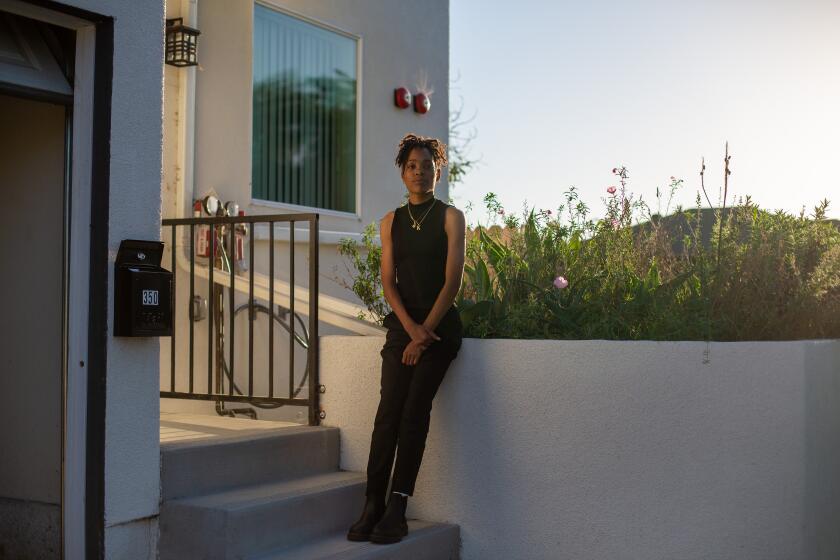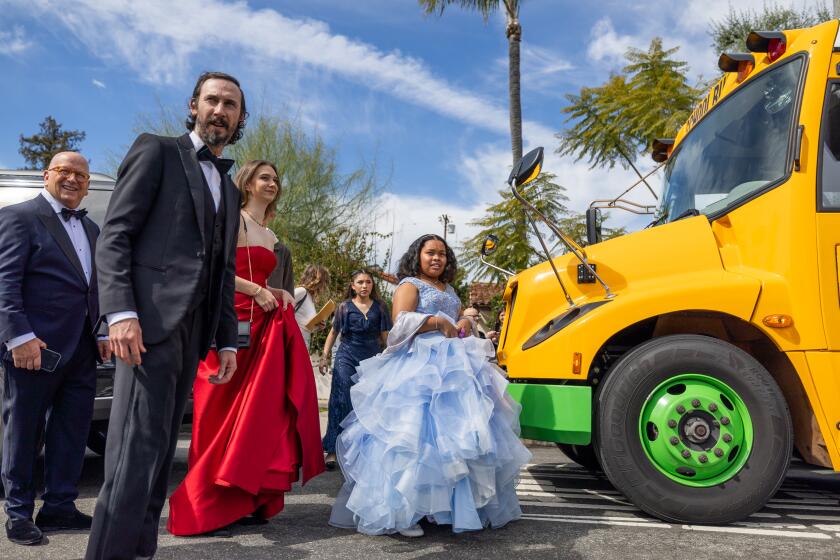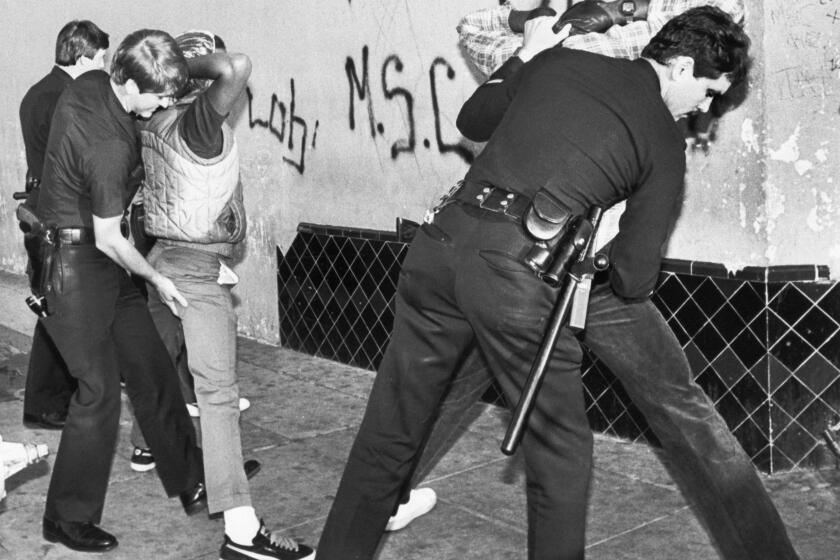These L.A. foster kids defied the odds when they aged out: ‘This isn’t the end of my story’

Alex Ballantyne thought he’d finally found some stability after spending much of his adolescence searching for a home where he felt safe and accepted.
Then, shortly after he collected his high school diploma, his longtime foster family in the Santa Clarita Valley kicked him out.
He found himself homeless, aging out of the Los Angeles County foster care system — which cuts off many services at 18 — and unsure where to turn.
“It was rough, and I guess it still is,” Ballantyne says in an intimate new documentary that follows two Los Angeles teens in foster care from age 14 to 20. “Possible Selves,” directed by Shaun Kadlec, will make its streaming debut this month on PBS SoCal Plus.
Ballantyne’s struggle to get back on his feet after high school is one of the most heartbreaking moments in a film that provides a rare, insider’s perspective on the challenges facing foster youth — including childhood trauma, looming insecurity, parents struggling with addiction and the stigma attached to the foster system, all of which are addressed with an unfiltered openness that only teens could achieve.
But even at the point when his future seemed unsure, Ballantyne was insistent: “This isn’t the end of my story.”
And it wasn’t.
Now, almost four years after the cameras stopped rolling, Ballantyne is promoting the film and sparking discussions about foster care, all while pursuing his associate’s degree from Pasadena City College. His goals have changed a bit from his teen years — when he wanted to be a professional musician — and become more ambitious: The 24-year-old plans to get his bachelor’s degree in business, hopefully at UC Berkeley, then get a law degree to work in public policy.
Finding stable housing is a top challenge for college students who have experienced foster care. A blueprint to help is emerging in California.
Achieving this would defy the odds for former foster youth, who statistically have some of the lowest outcomes when it comes to finishing high school, pursuing a degree and graduating college.
Ballantyne’s aspiration for “Possible Selves” is more modest: He hopes people come away with a better understanding of foster care and the wraparound services these youth need.
“What I really want people to take out from it ... we’re not all super-troubled kids,” Ballantyne said. “We’re just normal people that just so happen to be in [foster] care.”
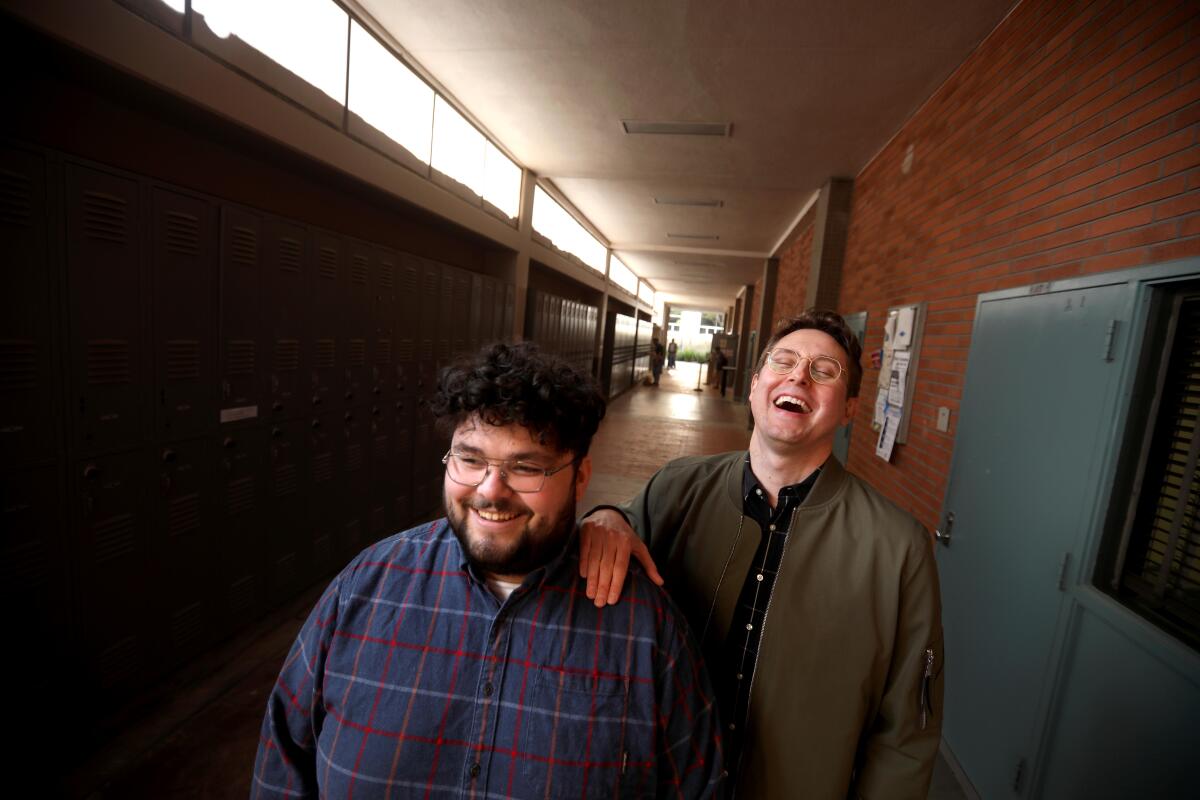
He hopes that other children in the foster system — or those who face other challenges — realize they aren’t the only ones going through tough times.
“I don’t want people to feel as alone and isolated as I did when I was,” he said.
Kadlec said he wants viewers to consider getting involved in the life of a vulnerable teen.
It’s a quest for a dress that these students could have never imagined. Thanks to a corps of community volunteers and donors they are ready for their red carpet walk on Sunday.
“Young people in foster care, they have a lot of services, there a lot of wonderful programs that provide all this support,” said Kadlec, who produced and filmed as well as directed the documentary. “But for all of them to work, you really need people to bring their hearts and show up and connect with young people. Because otherwise you get lost.
“So many people could become a mentor to a foster youth, and it could absolutely change their life,” he added.
The hourlong documentary follows Ballantyne and Mia Derisso, both part of the First Star UCLA Bruin Guardian Scholars Academy, a college prep program for foster youth that provides support, mentorship and access to one of the state’s premier universities. For one month every summer, the teens live on the UCLA campus, building a community, studying and envisioning what life could be like as a college student.
Derisso, 24, said that without the First Star program, she would likely never have considered college.
“I genuinely believe it was the starting point of my educational career, seeing that I could do more,” said Derisso, who is now studying Italian in Milan. She hopes to finish her computer science degree at an Italian university, having completed the first two years at San Francisco State University. “Every summer I was able to explore who I was as an individual.”
Those summer academies were a time when she didn’t have to worry about fitting into a new foster family’s expectations or rules and were a break from stressing over what home or challenge might come next.
“I genuinely think it helped me to continue to live life,” Derisso said. “I was so depressed, I was so down … but I looked forward to every summer.”
California’s foster care system serves about 42,000 children, most of whom were removed from their parents’ home after abuse or neglect. Many end up returning to their families; others are adopted or, like Ballantyne and Derisso, age out of the system. Foster children in the state are disproportionately Black and Native American and come from low-income families, and those who age out without a secure family structure face a unique set of hurdles with a limited safety net.
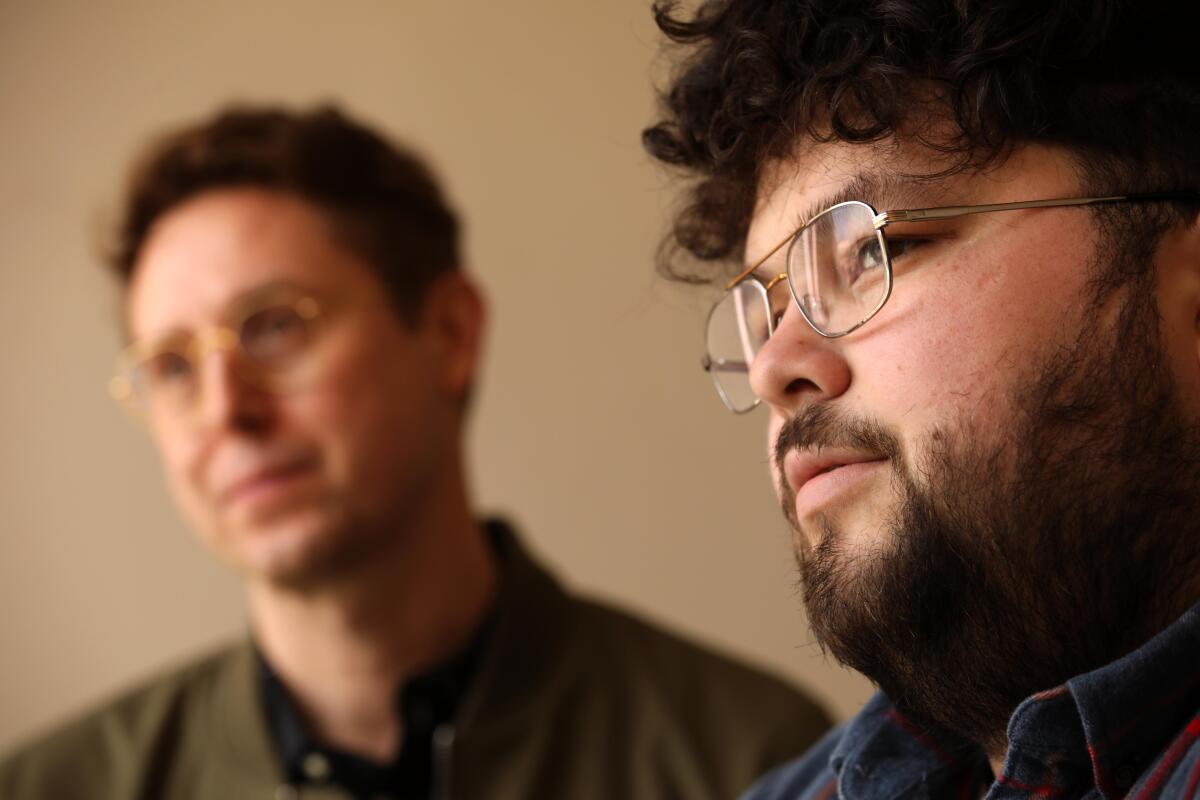
About 60% of California foster youth graduate high school, compared with 86% of non-foster youth, according to the California Department of Education. They are also more likely to drop out, be chronically absent and switch schools frequently.
These statistics drove the development of First Star, which began at UCLA in 2011 and has since expanded to universities across the country.
“These kids are the responsibility of the state,” said First Star Chief Executive Lyndsey Wilson. “Our state should want every one of the foster kids to graduate ... but that’s not happening.”
More important than the academic support, Wilson said, the First Star program provides constant check-ins with teens, social-emotional support and a community that understands and values them. While foster teens often switch schools, homes and social workers, “our organizations are the one constant,” she said.
California doesn’t keep statistics on college graduation rates for former foster kids, though the state has provided increasing support for this population, including free tuition at some state schools and dedicated on-campus resources. However, the state’s data show that foster youth enrolled at college within a year of high school graduation 20% less often than non-foster youth.
What’s next for L.A. County’s young wards? There’s no clear answer. A tug-of-war between the state and county has allowed too many teens to fall through the cracks.
A recent study of former California foster youth found that by age 23, about 10% had completed a college degree — despite more than 60% attending college. Less than 4% completed a four-year degree, according to the California Youth Transitions to Adulthood Study.
“Consistent adults matter when people have had adverse childhood experiences and trauma after trauma,” Wilson says in the film.
First Star doesn’t have data on its students’ college graduation rates but said their high school graduation rate was almost 100% last year.
Even though the documentary dives into some of the teens’ worst moments and greatest insecurities, Derisso and Ballantyne are both overwhelmingly proud of the film.
“I got to see how much I’ve grown and my progress,” Derisso said. “I hope that this motivates other foster kids to make their dreams come true.”
A free screening of the documentary, followed by a panel discussion that will include Kadlec and Ballantyne, will be held Saturday at 3 p.m. at the Los Angeles Central Library.
On PBS SoCal Plus, the film premieres May 11 at 9 p.m. in the L.A. area and can be streamed nationwide on the PBS app.
More to Read
Sign up for Essential California
The most important California stories and recommendations in your inbox every morning.
You may occasionally receive promotional content from the Los Angeles Times.
